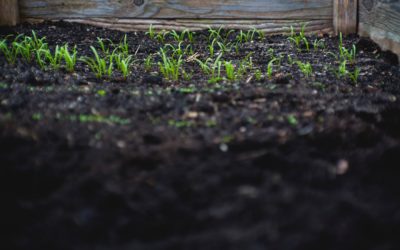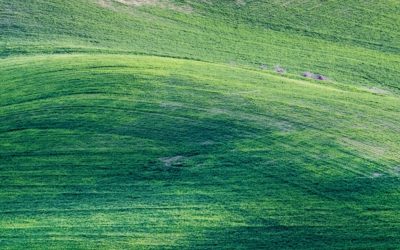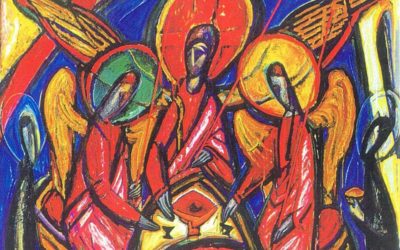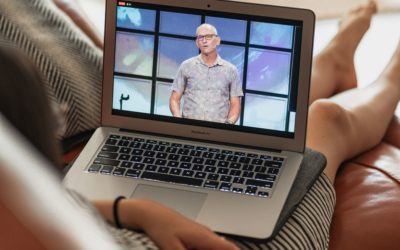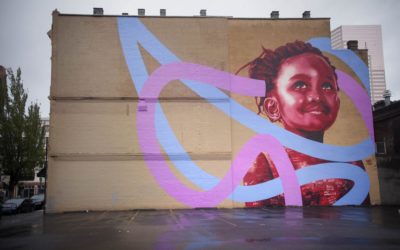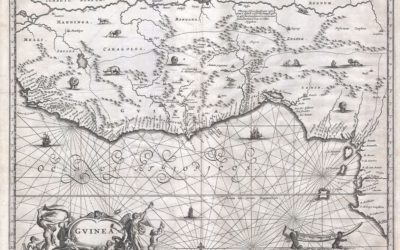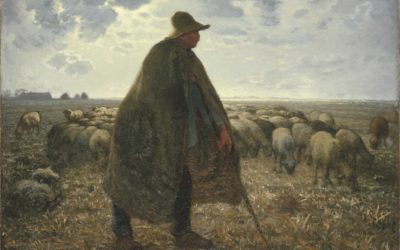Delivered at Dexter Avenue Baptist Church, Montgomery, Alabama November 4, 1956


Martin Luther King, Jr.
Delivered at Dexter Avenue Baptist Church, Montgomery, Alabama November 4, 1956
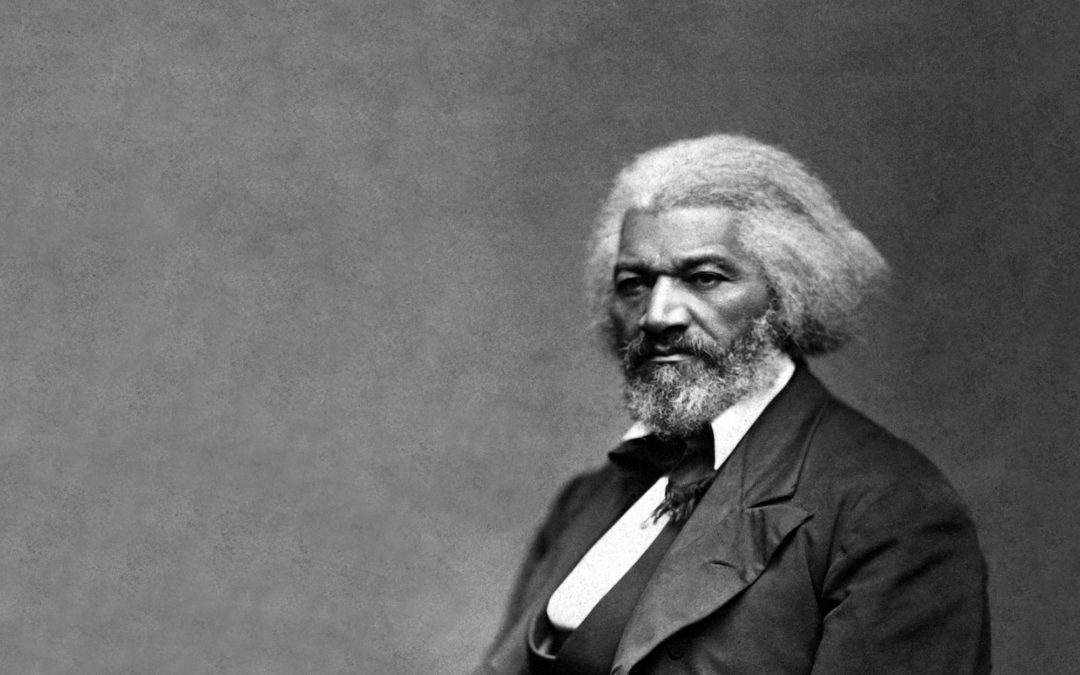
Nathan Beacom
Sometimes, the hinges of history swing as quietly as the turning of a page. The fate of a nation may turn on the clamour of battle, or it may turn on a thousand things more subtle, more hidden. In the story of the demise of American slave power, we all know the names...
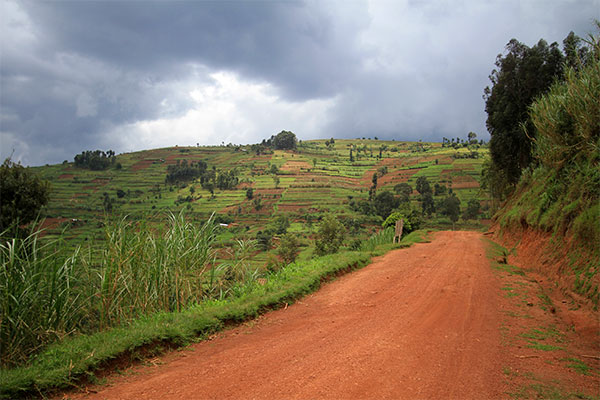
Denise Uwimana
“Gravel in your shoe will hinder you as much as boulders in your path. Besides the man who shot my father, I have to forgive the guy who shoves in front of me to take the last seat on the bus. Forgiving is a way of life.” That’s how I first heard Dr. Antoine...
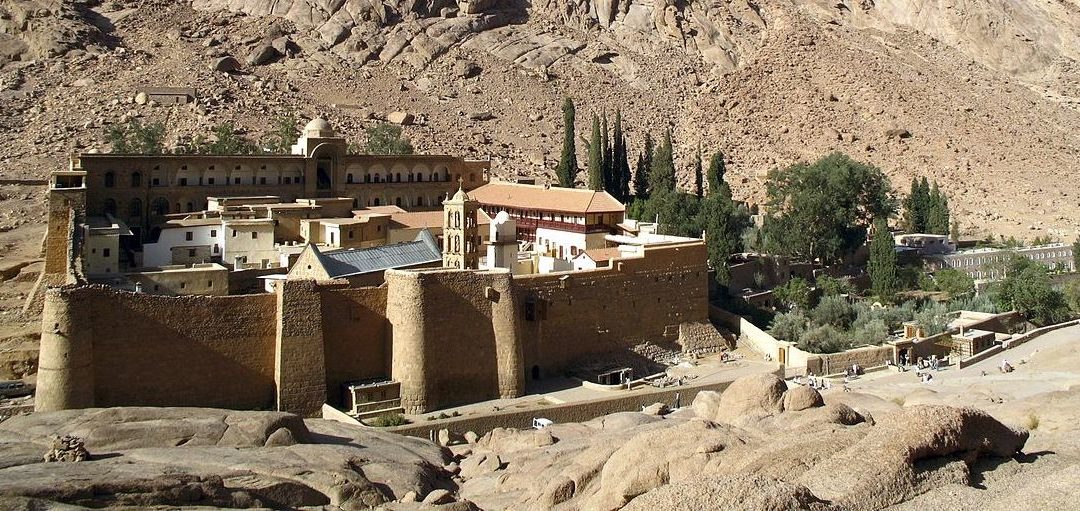
St. Macarius the Great
INTRODUCTION St. Macarius the Egyptian was a Coptic desert father of the early 4th century. While details of his life are scant, he is thought to have been born around the year 300 A.D. He is mentioned in the Apophthegmata ('Sayings') of the Desert Fathers and was...
Richard Gentry Thompson
"A dispute also arose among them as to which of them was considered to be greatest. Jesus said to them, "The kings of the Gentiles lord it over them; and those who exercise authority over them call themselves Benefactors. But you are not to be like that. Instead, the...
Rev. Reverdy C. Ransom
In this lecture sermon series, Rev. Ransom preaches on the status of the African American in society. He proclaims that, “the morning stars are paling, because the moral, intellectual, and spiritual night of the Negro is passing away.”
Hans Schlaffer
In this selection from his treatise on the Christian life, Hans Schlaffer writes on a common theme—the need for repentance—but emphasizing the ways in which this is learned from attention to the natural world. As opposed to Reformed or Lutheran divines who made their case with reference to the an argument from within Scripture, Shlaffer makes his case for the need for repentance by observing the suffering of animals.

Dirk Philips
When we examine and look closely into the above words of Scripture in order to understand them thoroughly, and to lay hold of the true sense and understanding of it that accords in all cases with the Scriptures, and is contrary to no Scriptures or the faith we find...
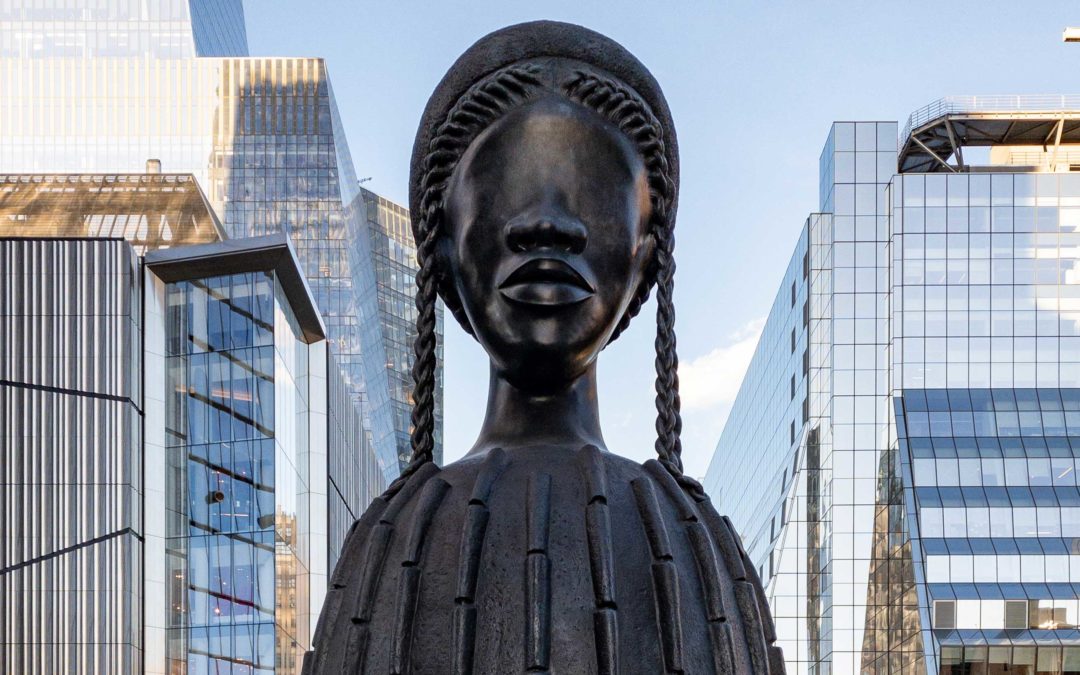
Natasha Sistrunk Robinson
“We are in a battle for the soul of this nation,” said Joseph Biden while racing toward his final showdown with Donald Trump last year. The pronouncement turned heads, his invocation of an ancient philosophical concept crashing into a heated public reckoning...
Ken Herfst
Our societies are in the middle of a crisis. The pandemic is asking us to think about what it means to be human living in community—not only with other people but also with the rest of creation, including animals—especially if it’s true that the virus originated from...
Peter Mommsen
For those afflicted, it has all the compulsiveness of a guilty habit: repeatedly scanning news headlines; experiencing mood swings based on the latest polling data; responding to scandals, epidemics, or Wall Street gyrations by first wondering how it will affect the...
Micah Latimer-Dennis
In the era of Zoom church, we know how technology can help bring us together. What are its hidden dangers—and opportunities—as we find ourselves worshiping from the other side of a screen?
Phil Christman
At one point in Adrienne Kennedy’s superb short play He Brought Her Heart Back in a Box, we hear a quotation that, in another context, might seem tailor-made for the tumult of this year. Here it is: “We must expect reverses, even defeats. They are sent to teach us...
Natasha Sistrunk Robinson
Don’t copy the behavior and customs of this world, but let God transform you into a new person by changing the way you think. Then you will learn to know God’s will for you, which is good and pleasing and perfect. Romans 12:2 NLT “I don’t see colour.” I cringe every...
Robin Shaw
Blessed are the peacemakers, for they shall be called sons of God. (Matthew 5:9) In 1994, over eight hundred thousand people were slaughtered in Rwanda. Members of the Tutsi tribe, together with those who sympathized with them, were brutally killed by members of the...
Filippo Gianferrari
The COVID-19 pandemic has given us a chance to save ourselves from the plague of social distancing that we were already in.
Dave Durocher, Joseph Grenny
Sometimes it’s the people we assume are the most broken that have the most to teach.
Brad Littlejohn
I. Introduction In the clarion call of the Reformation, Luther writes, “man does not live for himself alone in this mortal body, in order to work on its account, but also for all men on earth; nay, he lives only for others and not for himself.” Because one of the...
Dear Reader,
Welcome to Breaking Ground, a network of institutions and people which has grown out of a year-long publishing project. The publishing project was created by Comment in the spring of 2020 to use the resources of the Christian humanist tradition to respond collaboratively and imaginatively to the year’s significant crises—a public health and economic crisis provoked by COVID-19, a social crisis cracked open by the filmed murder of George Floyd, and a leadership crisis laid bare as the gravity of a global pandemic met the epistemological fracture of a country suffocating in political polarization and idolatry. What you’ll find here is a searchable archive of every essay, event, podcast, and sermon published from 2020–2021. It is a body of work that should stand the test of time: a record of a year that revealed the depths of our society’s fissures, and a collection of proposals and reflections on what should come after: how we can truly renew our civilization in this post-COVID world.
When the COVID-19 virus reached North American shores in early 2020, we all found ourselves scrambling to make sense of a chaotic and rapidly changing reality. There was no shortage of information in the pandemic’s early days, but the immediacy of the crisis and our society’s resulting shift to survival mode yielded media interpretations characterized more by short-term need and projection than anything attending systematically to the moral opportunity at hand. This reactivity quickly coalesced into a matched set of toxically partisan mirror-image narratives about what was happening and what it meant. A shared sense of reality—already fragile from years of an eroding social fabric—fractured still further as physical-distancing norms shuttered us inside our homes and attendant virtual silos. People were craving moral vision to make sense of what was happening, but few in those early days were providing it.
Comment, along with its key partner Plough, created Breaking Ground in an attempt to fill this vacuum, inviting a diverse array of Christian institutions to come together while requesting explorations along the following three axes:
1. Seeing clearly and deeply: What exactly is being revealed in this current crisis? About society? About the state of our own hearts?
2. Learning from the past: How have plagues historically provided opportunities for new beginnings, new building, a renewal of institutions?
3. Imagining the future: What institutions need renewing now, and how might that happen? What might be born anew in this time, and how do we help in the building?
One year later, and here we are. While not dispositively answering these questions, our contributors have explored them with rigor, depth, and almost unrivaled patience. In its collaborative beginnings, Breaking Ground has seeded a new public sphere—and, importantly, a frame for that sphere—that will now go on to nourish good thinking on and off the page, as we steward and prune our habits, our institutions, our cultural values, our politics.
For those of you who followed along with us as readers and writers, we thank you for making this a space where complex truths could be aired in public, where conversation could be rigorous in its search for truth yet grace-filled in its respect for the human face. We thank you for seeking to maintain a humble even-handedness in considering the nuances of thorny issues, and for braving an artful personalism—even confessional posture—as you reflected in public. And we thank you for choosing to venture with us into the hope that by breaking ground we might discover common ground.
So what’s next? Breaking Ground has finished a year of producing timely essays, podcasts, and events to focus now on nurturing the supporting network of twenty-plus institutions that joined Comment in building this project. This is a network distinguished primarily by our constructive vision for society—politically appreciative but not politically bound—as well as our commitment to tilling a more integrated field of Christian social thought and action for twenty-first-century challenges. While you can find Breaking Ground’s 2020/21 crisis-specific conversation here by way of the search function below, we encourage you to follow some of the very same writers you’ve so enjoyed here by subscribing to the newsletters of Comment, Plough, The Trinity Forum, New York Encounter, BitterSweet Monthly, and any one of the other organizations who helped till this soil.
We’re not going away; we’re simply investing in the quieter work required to build a sustainable structure of collaboration between institutions and individuals; as we and our writers continue to give public voice to the results of these collaborations in the pages mentioned above. In the meantime, thank you for stopping by. We trust that the insights crystallized while wading through a globally tumultuous year will prove both prescient and generative, as the seeds we have spent the year sowing in this broken ground begin to grow.
Sincerely,


Dear Reader,
Ten months into a chastened world and seven months into this audacious attempt to pilgrim through it aloud, I write first with thanks. Without your engagement, this venture to see clearly, discern deeply, and ask the hard questions to imagine a better normal would not have taken off. As any one of our contributors will tell you, the invitation to step back and locate the vagaries of a world in flux is not for the faint of heart. We are honored by the “yes” of all those who have chosen to give of their time and talents—often in the midst of personal hardship and the strain of circumstance—to make Breaking Ground a one-of-a-kind space for record-keeping, truth-telling, and guidance from Christian reservoirs, and with this, we trust, some very real grounds to hope.
For hopeful we are this late December, and not just because a vaccine is on the road. As our writers have performed their version of a societal x-ray week to week, homing in on different parts of the body politic while risking their own implication in the “so what and now what,” several truths have risen from the rubble:
It has become undeniable that a society is—in essence and in fact—a system of relationships. We are interdependent at levels both tangible and mysterious; our fates are tied. Human creatureliness persists; no technology can erase the glory and vulnerability inscribed in our embodiment. We are dust; to dust we will return. This awakening to our mortality has reoriented many of us to better questions and granted glimpses into wiser relationships with time. Silence amid sorrow need not be condemned as the response of the indifferent; it might instead be the waiting and watching of the soft heart, poised to act when led.
But important lessons like these have been accompanied by a multitude of warning signs. The summer’s racial protests brought a moment of joyous unity for black and white, sacred and secular, even progressives and conservatives: for a moment it seemed as though this unity could build on the human solidarity that the disease had been building. But that hope crumbled, through lack of wise leadership, into excess and still deeper division. The misbegotten marriage of empire and Kingdom has cracked among wide swaths of the younger faithful, but some Christians’ response to that needed disentangling has been a vengeful, last-ditch defense that makes a mockery of Jesus Christ and imperils the republic. Our newfound attentiveness to proximate realities like the turning of seasons and the path flight of birds—a gift in otherwise harried modernity—risks being overshadowed by worrisome indicators that our perceptions of the stories we’re living out in broader reality are becoming irreconcilable. It seems our particular experiences of this wild year from our particular corners of the universe have not helped our trust, our goodwill, or our reason.
And so Breaking Ground’s work will continue. We have focused, during the first half of this project, on trying to see the present clearly and deeply: to make sense of the chaotic and rapidly changing events that made 2020 feel like a whole year hit by a tidal wave. We’re now turning to consider the future, while continuing to draw deep from the wells of the past. Come January, you will see us shifting from a posture of naming and noticing to one that invites a more proactive reimagining of the spheres whose healing might yet make them the components of a healthy society.
If June to December was a time to try to make sense of truths we were seeing, truths too long veiled beneath the hum of “normal,” 2021 will be a time for mapping a way forward. Our writers will aim at wise, well-grounded, and imaginative seed-sowing, oriented toward cultivating the conditions for human goods to grow. These ideas and subsequent discussions will focus on the following questions:
To pursue each of these we’ll be inviting signature voices from the spheres of politics and law, education, journalism, business, the church, medicine, the household, science, technology, philanthropy, and more to explore what in that domain needs to be planted, what needs pruning and nurturing, and how each of these areas might interact with the others. We’re working on a new slate of stories that shine light on the often-hidden places where Christ’s church is doing what she does best—serving and learning from the poor and the neglected, considering one’s own rights a loss and moving outward in love. And even as we search our own community of faith in honest lament for the various ways in which our lack of unity and vision have failed our society and failed our God, we will undertake this confessional work in light of Scripture and the cloud of witnesses who grant us as much caution as they do compass.
I am ever grateful to you, our readers; to our contributors; and to the nearly twenty organizational partners who have anchored our efforts. I am indebted to my co-laborers: senior editor Susannah Black, managing editor Heidi Deddens, graphic designer Kathryn de Ruijter, and copy editor Jeff Reimer, and our budding crop of sermon curators and podcast guests and producers.
It is an adventure, and it will continue. In these last few days of 2020, I’d like to invite you to join in this community we’re building. Will you share a particular Breaking Ground piece with those of your friends and family to whom it will speak? And will you consider a financial gift to strengthen Breaking Ground’s capacity, as we head into this next season?
If one thing’s become clear this year, it’s that we’re all in this together. We have to be. And that’s a source of joy. I am grateful for the opportunity to see clearly, dig deeply, and plan bravely alongside you.
Humbly,


Anne Snyder
Editor-in-Chief, Comment

